Make a Difference NOW! UAE schools share Top 14 easy things parents and kids can do to help save the planet. The SchoolsCompared 2022 Guide to Sustainability.
Wonder how we can all make a difference and contribute to sustainability? Have you ever been struck by eco-guilt? As busy parents living in the UAE, most of us fall victim to it sooner or later. Whether it’s the bolt of frustration that hits every time you forget to bring your reusable shopping bag to Spinneys (again!), or that sinking feeling you get while peeling off yet another disposable face mask to discard in the bin, most of us have a small but persistent inner critic weighing up the environmental credentials of our actions and, all too often, finding us lacking.
Now this doesn’t mean that eco-guilt is a negative thing. In the right circumstances, it is the uncomfortable catalyst that leads to positive change. It’s what spurs on activists and inspires would-be eco-warriors. But eco-guilt can also feel overwhelming.
For UAE desert-dwelling expats, the whole concept of sustainability can feel very loaded and can be – let’s be honest – a bit of a turn-off. The flight-emissions footprint that so many of us have to our names as expats travelling to see our families can seem irredeemable on its own. Not to mention the impact of desalination, imported food, and everything else that comes from supporting a vibrant city on land that would otherwise be desert.
But things are rapidly changing for the better in the UAE when it comes to sustainability. The UAE was the first Middle East and North Africa (MENA) nation to commit to the Net Zero by 2050 initiative, which aims for the country to achieve net-zero emissions by 2050. In 2015 Dubai opened The Sustainable City, and the opening of several environmentally minded schools followed. From investing in sustainable transport systems and cultivation technologies, to launching strategies for renewable energy and ‘clean’ fossil fuels, the UAE has made great eco strides in the past 10 – 15 years. This year it was even selected to the host country for the UN’s COP28 Climate Change meeting in 2023.
And just this month it was announced that single-use plastics could be banned in Abu Dhabi by the end of 2022 – a move that is set to target around 15 items, including plastic bags, straws and disposable plates and cutlery, all commonly used in takeaway meals.
“This is very welcome news,” says David Gerber, Primary Vice Principal and Leader of the Fairgreen Eco-council, Fairgreen International School Dubai:
“Prior to the pandemic, our school was plastic free and did a lot of work on educating the community about the impact of plastics in the environment. Throughout the pandemic it seemed like the world took a small step backwards with regard to single use products, but now we are moving forward at lightning speed. Banning single-use plastic bags, food agriculture that is grown locally and general mindfulness of the products we consume every day are examples of things we’re doing to live more sustainably. We are encouraged that our students can see a future that isn’t dependent on plastic.”
“It’s a brilliant move and about time,” agrees Brett Girven, Principal of The Arbor School in Dubai:
“I sincerely hope that Dubai and the remainder of the emirates join the initiative. Single-use plastics are a clear and obvious symptom of the wider problem – consumption without conscience. Thoughtless consumption produces waste, and we need to become mindful consumers.”
So, if you’d like to do more to help rather than hinder the climate-change crisis, don’t get lost in an eco-shame-spiral. Instead, here UAE school leaders and environmental experts share some simple, practical steps we can all take today, to help preserve the planet and contribute to sustainability…
14 Simple ways to help the planet today (and make a difference now…)
1. BYO coffee cup
“Did you know that most single use coffee cups have an insulation liner that is not recyclable?” says Fairgreen International School Vice Principal David Gerber:
“If you bring your own coffee cup to your local coffee shop, not only do you stop a cup from going into the landfill, but you also might get a few dirhams off your favourite drink.”
2. Cut down on meat and dairy
The dairy industry has come under scrutiny for its carbon footprint for many years. The sector reportedly emits 4 percent of all human-caused emissions globally (mostly in the form of the greenhouse gas methane), and 1kg of beef is said to emit 60 kilos of CO2 emissions (1kg of chicken emits 6 kilos of CO2). “Reduce your consumption of meat and dairy,” says Brett Girven, Principal of The Arbor School in Dubai. But this doesn’t have to mean turning totally vegan, he reassures. Rather:
“…take out one meal per week that includes meat, and this will be the first step towards helping the planet.”
3. Recycle your tech
When dead batteries, old laptops, defunct phones and other tech get thrown away, they leach toxic chemicals into the environment and poison ecosystems. “There are more and more places that are popping up around Dubai that allow us to recycle all of the hazardous waste that is in our technology,” says Mr Gerber. This is of course all the more important in schools and offices, which may have regular, large-scale tech upgrades. “Fairgreen works closely with a local company to ensure all of our schools’ technology waste is disposed of properly as well as those of our community,” says Gerber. In Dubai, you can dispose of your old batteries inside the dedicated boxes in Spinneys stores and Virgin Megastore.
4. Carpool for Sustainability
In an ideal world, we would all be walking or cycling everywhere – but that’s not always possible or practical in the UAE – especially during the summer months! Instead of beating yourself up about it, “reduce use of vehicles through car-pooling, or by sharing public transport,” suggests The Arbor School’s Principal Mr Girven.
5. Plant something
“The common plant, Spekboom, is a hardy CO2 sponge,” says Fairgreen International School’s Primary Vice Principal David Gerber. “It’s been said that Spekboom can take out more than 4 tonnes of CO2 per year per hectare, which is greater than the Amazon rainforest.”
6. Consume consciously
“Make conscious decisions to buy less, waste less, or buy items which are of the highest quality that you are able to afford,” says Brett Girven, Principal of The Arbor School.
“When you go shopping this week, think about what you buy – can you reduce the number of things and buy one, higher quality item instead?”
7. Reduce single-use plastic
“Plastic is in just about everything that we purchase yet more and more products are reducing the plastic they use for their packaging,” says Fairgreen International School’s Primary Vice Principal David Gerber:
“If you have a choice between a product that is fully plastic and packaged in plastic and one that is not, make the easy choice.”
8. Educate yourself on Sustainability
There is a vast pool of informative content out there just waiting to be discovered for those interested in sustainability in the UAE. “Watch documentaries as a family, read books together, follow the right influencers,” says Brett Girven. “Choose wisely…some may change your life!” If you’re worried about how doom-laden and panic-inducing some climate-change media can be, start with Woody Harrelson’s ‘Kiss the Ground’ – a hopeful Netflix documentary about how the answer to climate change could be right under our feet…
9. Get outside!
“It is well known that to care about nature, children and adults should spend significant time in nature,” says Brett Girven, Principal of The Arbor School Dubai:
“Avoid the mall – go to the beach, walk in a park, drive to the mountains and hike, ride a bike, sit under a shady tree. Commit to doing one thing outside this weekend.”
10. Leave every space better than you found it
While getting outside, be sure you do it in an eco-friendly way. “The desert is becoming more polluted as we begin to explore the beautiful natural environment of the UAE,” says Fairgreen International School Primary Vice Principal David Gerber. “If we all explored and, as we did, did our job to pick up any trash we find and ensure our own waste is disposed of properly, the UAE would remain as pristine as it was 100 years ago. As Chief Seattle said:
“Take only memories and leave only footprints.”
11. Just do ONE thing for ONE month
There are so many things we should be doing; but ‘should’ can lead to eco-guilt, which leads to overwhelm, which leads to stasis, and nothing changes. Instead, break it down: “As a family commit to one strategy– meatless Mondays, recycling 100% of soda cans at your house, timing your showers, reusable coffee cups,” suggests Brett Girven, Principal of The Arbor School. Every little helps and small changes help:
“Just choose one thing for a month.”
12. Light up efficiently
“Change your lightbulbs to energy-efficient LEDs,” says Arbor School Principal Mr Girven. LEDs use 75% less energy than incandescent lighting:
“The initial cost of LEDs will be higher, but over time your savings will more than make up for it.”
13. Eat locally
The idea that no food is grown in the desert is outdated, says Fairgreen International School’s Primary Vice Principal David Gerber. “It’s surprising but more and more hydroponics and vertical farms are popping up around the UAE. You can find a lot of locally grown produce that reduces the footprint of the food we eat.” Check the country labels on your online grocery order or in-store, or go to a local farmer’s market.
14. Pass on toys and clothes
David Gerber, Vice Principal of Fairgreen International School, says: “I once heard someone say ‘There is no such thing as throwing something away. Everything must go somewhere.’ If you have something that you no longer want or need, think about donating it to one of the local organizations, giving it to friends or family, or selling it at a local market.”
“Second-hand markets and commission stores are becoming more and more common in Dubai. It is a great way of ensuring useful items do not end up in landfills.”
Two fun experiments to teach kids about sustainability
Make your own plastic
“Try making plastic from milk and vinegar,” says Fairgreen International School Primary Vice Principal David Gerber. “Scientists and entrepreneurs around the world are trying to solve the plastic problem, and one of their creative solutions is to use organic materials to create a plastic polymer.”
There are many experiments on the Internet but by simply heating milk and adding the right amount of vinegar anyone is able to make a biodegradable environmentally safe polymer. “Imagine carrying your milk and vinegar home from the grocery store in a milk and vinegar grocery bag!”
You will need:
- 1 cup of milk
- 1 Tablespoon of vinegar
- A small pan
- A spoon
- A sieve
- Paper towels
- Food colouring (optional)
Method:
- Place milk in pan and heat over a medium heat, but do not boil
- When the milk is warm, add the vinegar. The acid in the vinegar causes the protein in the milk to solidify into curds, which are made out of casein; a component used in the production of some plastics.
- Strain the curds and whey mixture through the sieve. Then you can mold your ‘plastic’ into any shape you like. Add food colouring and puncture a hole in it and, voila, you’ve made your own plastic keyring!
Make your own water filter
“Understanding how to filter water is a simple experiment,” says Brett Girven, Principal of The Arbor School in Dubai. “In Dubai, the naturally available water in aquifers beneath the ground is very limited, and that water availability is rapidly reducing due to overuse and consumption. The UAE uses filtration systems, which are similar to this process, to take seawater and make it drinkable – but it is an energy expensive process. Understanding how water can be cleaned through a simple process is a fun experiment to do at home.”
Girven points to this link where there are multiple water filter experiments whereby children can learn about water filtration using simple items such as a bottle, gravel and sand. “Access to clean water is the United Nations’ Sustainable Development Goal number 6, and although the earth is largely covered by water, only a small percentage of that is drinkable. Many people do not have access to clean, sanitary water sources.
© SchoolsCompared.com. 2022. All rights reserved.











































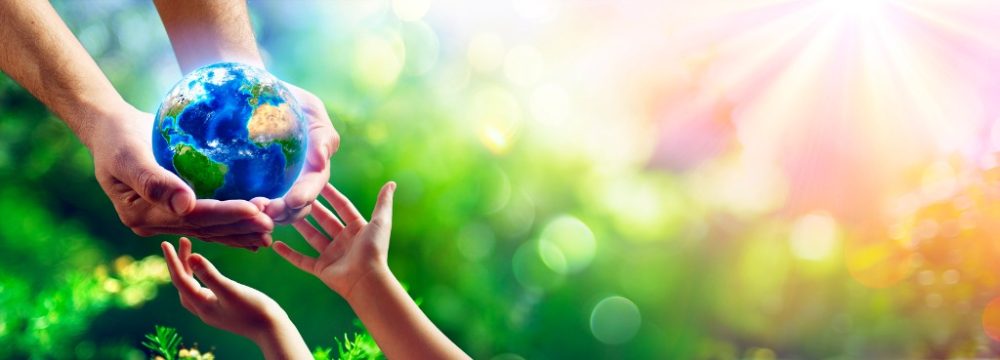
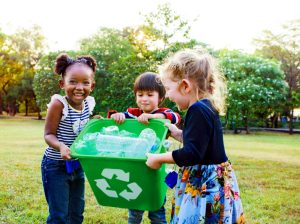
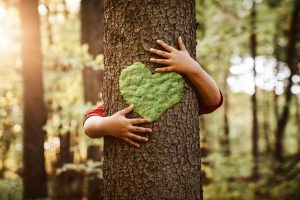
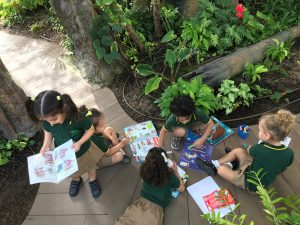
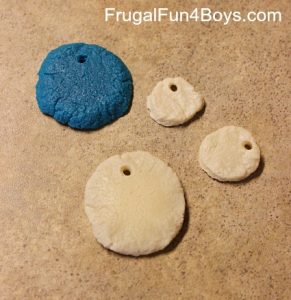
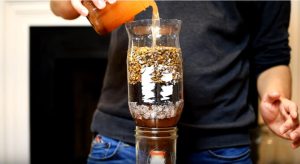
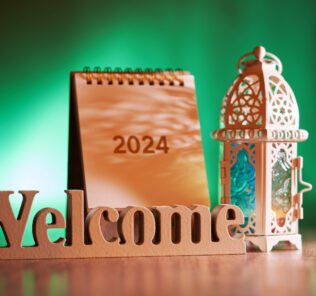
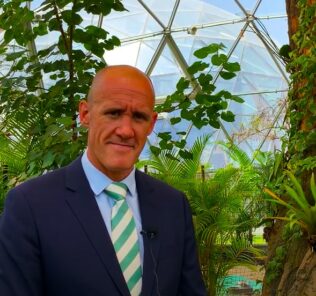
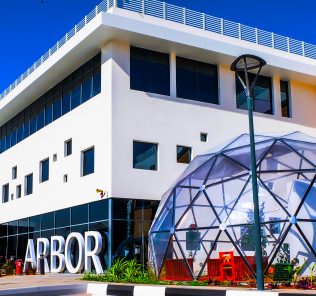
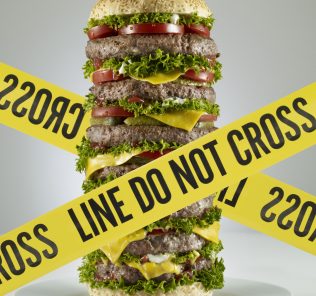
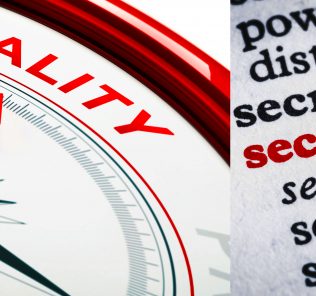

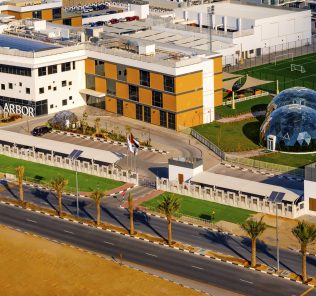














Leave a Response